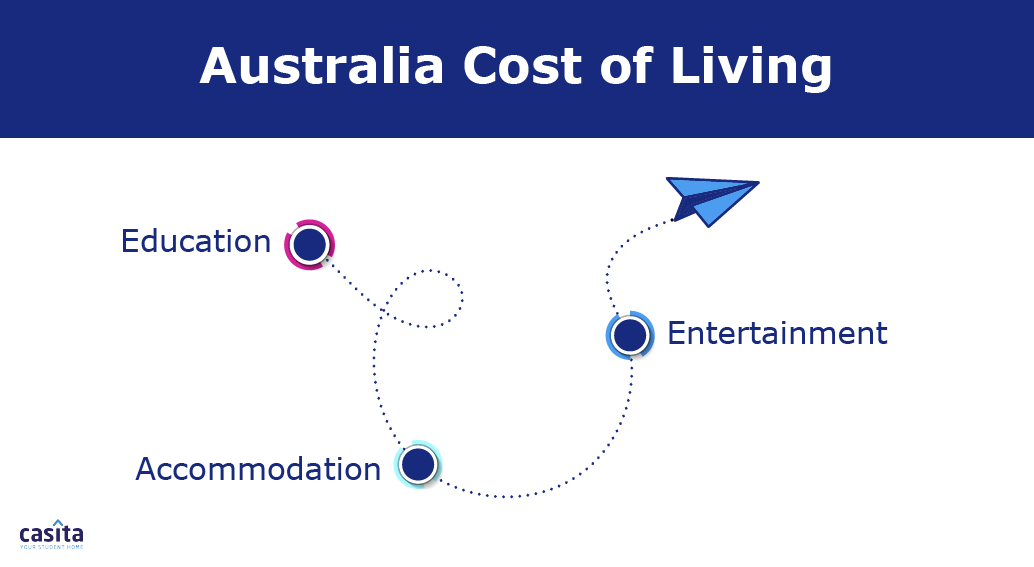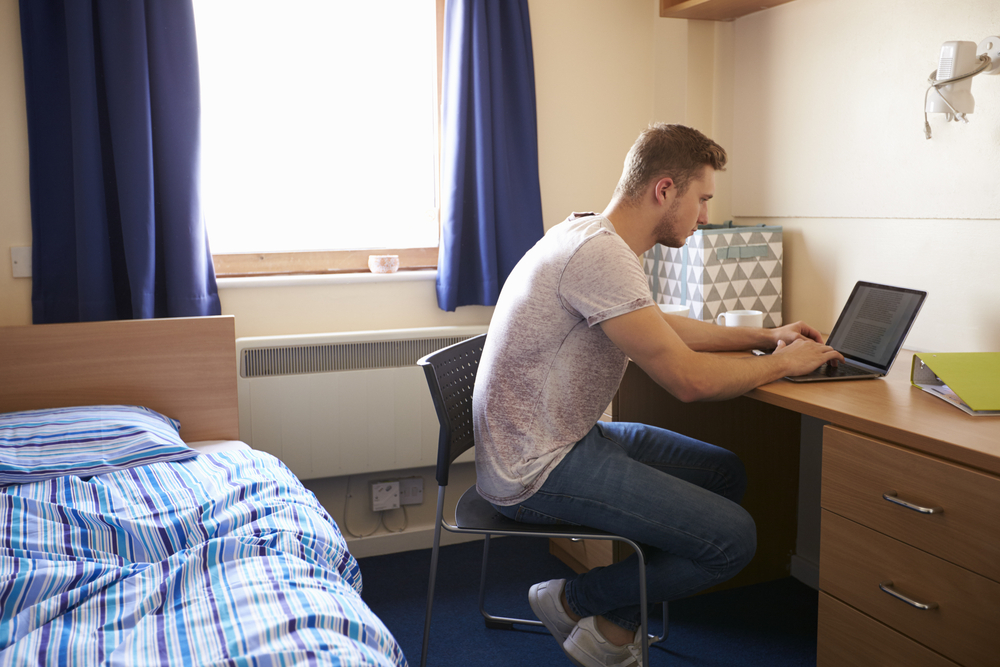Cost of Living in Australia: A Student's Comprehensive Guide
Tips and Advice
Student Finance
4 mins read
Share

Updated at: 16 December, 2024
Published at: 26 November, 2023
By Allaa Ashraf
Cost of Living in Australia: A Student's Comprehensive Guide
Tips and Advice
Student Finance
4 mins read

Updated at: 16 December, 2024
Published at: 26 November, 2023
By Allaa Ashraf
Share
Australia, this charming land of diverse landscapes and vibrant cities, attracts not just you but all international students with its world-class education, rich culture, and breathtaking natural beauty. While this journey is, in the majority, a fun and exciting one, it doesn’t come without its challenges. Before embarking on this educational adventure, it's essential to grasp the cost of living in Australia to create a sound student budget plan. This comprehensive guide delves into the various expenses you'll encounter as a student in this dynamic country. Let’s get right down to business!

Living Expenses in Australia for Students
In this section, we break down living costs in Australia for international students and give you insight into the top tips and tricks to stay on budget while still living comfortably and experiencing all that the city has to offer during your time there.
Education and Academic Expenses
Tuition fees and other academic expenses are significant costs for international students in Australia. The exact amount you'll pay will vary depending on your chosen institution, level of study, and field of study. Generally, tuition fees for undergraduate programmes range from AUD 20,000 to AUD 35,000 per year. For postgraduate programmes, tuition fees can be higher, ranging from AUD 25,000 to AUD 45,000 per year. Apart from tuition fees, there are other academic costs such as textbooks, stationery, and electronic resources.
Bonus tip: Applying for scholarships or financial aid and opting for second-hand books or digital alternatives can help minimise these expenses.
Accommodation
Accommodation is quite a significant expense for students in Australia. Options range from university dormitories to private rentals. On-campus housing provides convenience but may be limited. Off-campus choices are plentiful and may be the go-to choice for many international students.
The cost of student accommodation Australia will depend on your location, accommodation type, and living arrangements. Costs vary across cities in Australia, with Sydney and Melbourne generally being more expensive than others. On average, students can expect to pay between AUD 200 and AUD 400 per week for shared accommodation. For a one-bedroom apartment, the cost can range from AUD 300 to AUD 500 per week.
Bonus tip: Choose student accommodation options outside the city centre that offer all-inclusive rent. Also, if privacy is not on top of your checklist when it comes to student accommodation needs, consider sharing a unit with a fellow student.
Just contact us if you have any questions about accommodation options or would like to make a booking!

Utilities
Utilities should be considered when considering the cost of living in Australia. If you choose to live in student housing that doesn’t offer all-inclusive rent, you may want to budget for utilities such as electricity, water, heating, and cooling. Students can expect to spend AUD 50 to AUD 150 per month on these services. Also, staying connected is essential for students. Phone and internet plans can cost around AUD 30 to AUD 60 per month.
Bonus tip: Opting for energy-efficient practises and student mobile and internet plans can help manage these costs.
Transportation
Efficient and affordable transportation is essential for students in Australia. Public transportation, including buses, trains, and trams, is well developed and offers convenient connectivity. Weekly passes typically range between AUD 40 and AUD 80.
Bonus tip: Use your student ID to take advantage of transportation discounts, as most cities offer a discounted fare for students, typically ranging from 20% to 50% off the regular fare. Also, cycling is another eco-friendly and cost-effective option, with bicycles readily available for purchase or rental.
Food and Groceries
Australian cities provide a diverse range of culinary experiences. Meal expenses constitute a substantial portion of a student's budget in Australia. Grocery costs vary based on individual dietary preferences and shopping habits. However, on average, students can expect to spend between AUD 300 and AUD 600 monthly on food.
Bonus tips: While dining out can be an occasional indulgence, it's essential to consider the higher costs associated with restaurants and cafes. A more cost-effective approach is to cook at home and purchase groceries from supermarkets or local markets.

Health
The Australian government has a Medicare system that covers most medical expenses for residents. Still, international students are typically required to purchase Overseas Student Health Cover (OSHC), which costs around AUD 500 to AUD 600 per year.
Bonus tip: Compare different OSHC plans to find one that suits your needs and budget.
Entertainment
Australia is a pretty charming country to live in, with all the beaches and outdoor activities. Socialising and exploring the country's attractions are important aspects of the student experience. Budgeting for entertainment and recreation, which can range from AUD 50 to AUD 200 per month, is crucial.
Bonus tip: Allocate a portion of your budget for leisure activities, including cinema outings, gym memberships, or other hobbies. Also, some tourist attractions, like museums and theatres, offer student discounts, so be sure to take advantage of those.
Additional Tips
While the cost of living in Australia can be higher than in some other countries, students can use the following strategies to manage their finances effectively:
1. Create a Budget
Financial planning is crucial for students in Australia, and a comprehensive budget is the cornerstone of this process. Creating a detailed budget allows you to manage your finances, track your expenses, and prioritise essential needs.
2. Explore Part-Time Work Opportunities
Part-time work can provide both financial support and valuable work experience for students. Numerous institutions offer on-campus employment opportunities, and many students choose this course to supplement their income. However, it is crucial to adhere to student visa regulations regarding work hours for international students. Australia has strict guidelines in this regard, so ensure you are well-informed and compliant.

3. Embrace an Economic Lifestyle
Adopting thrifty and cost-saving habits, such as cooking at home, utilising public transportation, and taking advantage of student discounts in Australia, can significantly reduce expenses.
While Australia's high quality of life comes with associated costs, careful planning and financial discipline can empower you to enjoy a fulfilling academic and cultural experience. Additionally, understanding the financial resources available while studying in Australia, such as scholarships or part-time work opportunities, can significantly impact your budget. This guide serves as a starting point for navigating the cost of living in Australia, enabling you to make informed financial decisions during your educational journey.
Tips and Advice
Student Finance
By Allaa Ashraf
Share
Tips and Advice
Student Finance
Updated at:
Published at:
By Allaa Ashraf
Share





